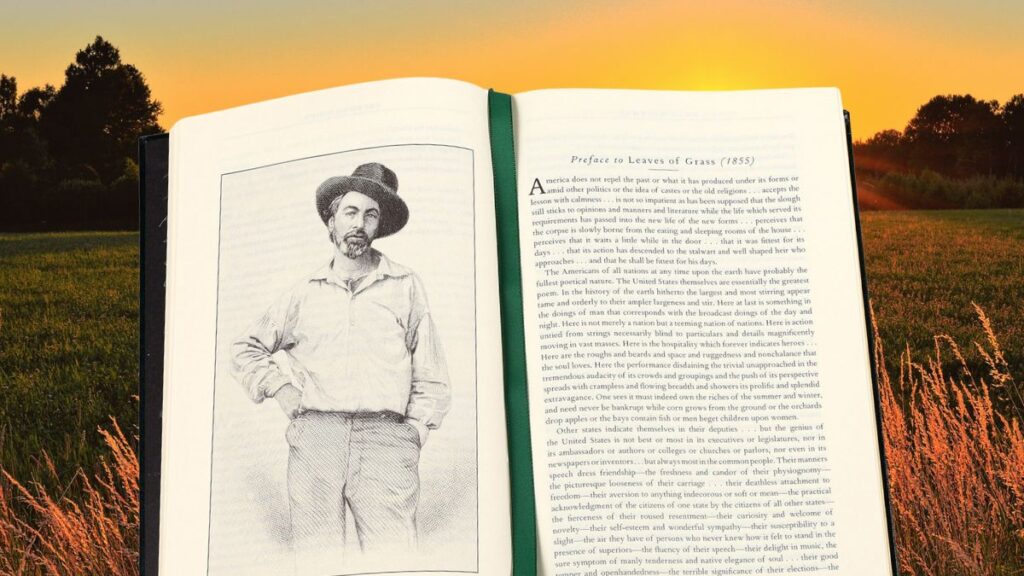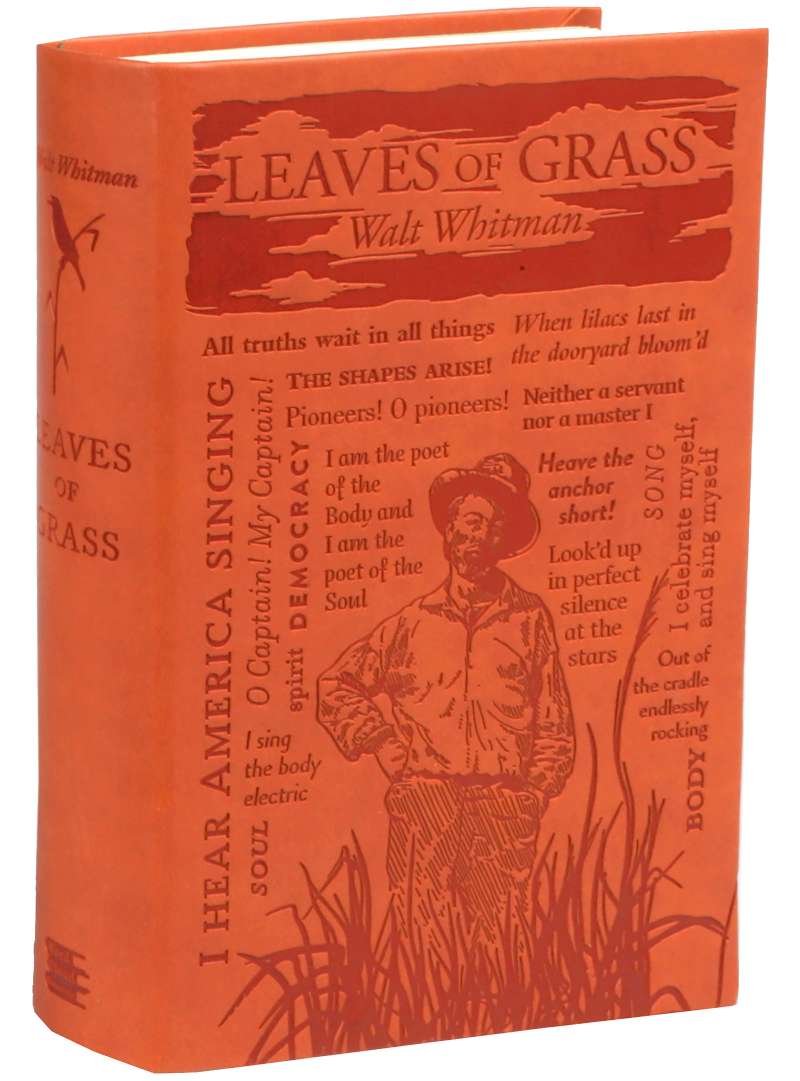Poet. Advocate. Ahead of his time. Walt Whitman was an extremely fascinating and complex guy.
• Born in 1818, the second of eight children that survived to adulthood, Walt Whitman’s father pulled the boy out of school when he was 11 to earn money for the family. He worked as apprentice in the printing department of a Brooklyn newspaper before moving into editorial tasks at various New York papers as a young adult.
• It’s surprising Walt Whitman’s name is “Walt Whitman” and not that of an American president. His three brothers were named Thomas Jefferson, George Washington, and Andrew Jackson.
• By the time he was 19, Whitman had enough newspaper experience to start one of his own. In 1837 he founded The Long-Islander. He left after 10 months, but the publication remains in business in 2023.
• Walt Whitman released the first edition of Leaves of Grass — which he published himself — in 1855. It consisted of just 12 poems, and Whitman only printed 795 copies.
Add the Word Cloud Classic to your collection!
• One copy found its way to influential and bestselling author Ralph Waldo Emerson, who championed Whitman’s work, who left his name off the cover but put it on the title page (which he helped typeset) and included an author photo.
• The work was viewed as controversial or even obscene by the literati and public of the time, because of Whitman’s frank and celebratory writing about sensuality, human sexuality, and what some considered a nonreligious worship of nature. It also flaunted the well-established so-called rules of poetry, abandoning rhyme and meter when the author felt it necessary. Leaves of Grass ultimately lost Whitman his job at the Department of the Interior.
• Despite publishing Leaves of Grass in 1855, Whitman never really stopped working on it. He kept adding poems, revising ones, and including annexes, and reissued new versions in 1856, 1860, 1867, 1872, and 1882. The sixth and final iteration of Leaves of Grass contained a whopping 400 poems.
• But Whitman’s most financially successful work in his lifetime was his 1842 novel Franklin Evans, or The Inebriate: A Tale of the Times. Part of the then-popular genre of temperance novels — melodramatic stories about people whose lives are ruined by alcohol — it sold 20,000 copies. Whitman wrote from experience of living with alcoholics in his family, but he also said he wrote Franklin Evans strictly for the money. He composed it in three days, and he said he was drunk for the entire writing period.
• Whitman’s sexuality is still debated by scholars and acolytes. He was married to a woman, but he spoke and wrote often of frequent same-sex relationships. Almost as scandalous in the 1800s was Whitman’s embrace of nudity. He liked to stroll around the woods while naked, and he swam in the buff, too, and posed for sketches and photographs in the altogether.
Walt Whitman’s masterwork, Leaves of Grass, is available in a collectible edition from Canterbury Classics.









